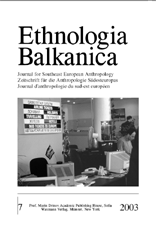La citoyenneté au sein de l’Union Européenne: un accès à la civilisation?
Citizenship in the European Union: an Access to Civilisation?
Author(s): François RueggSubject(s): Politics / Political Sciences
Published by: LIT Verlag
Keywords: EU enlargement as colonization of the East; EU standards and political correctness;
Summary/Abstract: The European Union’s enlargement process to the East is based on the same ideology of civilisation that was developed during the Enlightenment period and applied by the Austrian colonial Monarchs. Today’s geopolitical situation in Eastern-central Europe is also analogous to that in the late 18th Century: the withdrawal of an Empire (respectively Ottoman and Soviet) created a void and the need for development strategies to fill it. A transition period was considered to adapt to the new norms and regulations, equally imported from the West. Politically correct criteria are to be filled for the uncivilised Eastern-central Europe citizens to access the civilised world. Economic development, education, security and other measures imposed in the Eastern Austrian Empire during the late 18th century echo present development strategies of the European Union (acquis communautaires). And as then, the population reacts today in two opposite ways: the new-believers, those who seek the new ideology of civilisation and the resistors who proudly refuse it. The chosen attitude is determined neither by one’s ethnicity or culture, but rather by one’s decision to maintain or improve one’s social, symbolic and economic position. Cultural heritage, seduction, power, money, education, dreams and feelings play – as everywhere else in Europe – a considerable role in people’s convictions, behaviours and decisions. This is what culturalhistorical anthropology can strive to clarify.
Journal: Ethnologia Balkanica
- Issue Year: 2003
- Issue No: 07
- Page Range: 108-122
- Page Count: 16
- Language: French
- Content File-PDF

